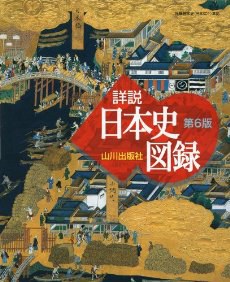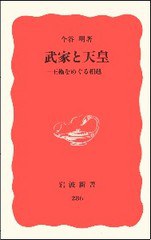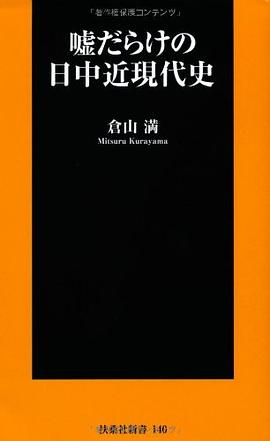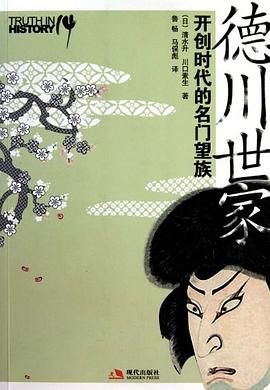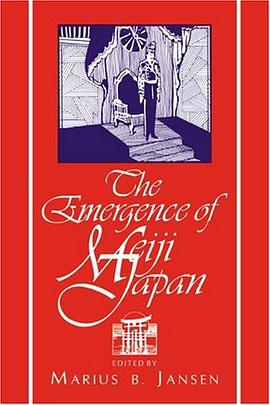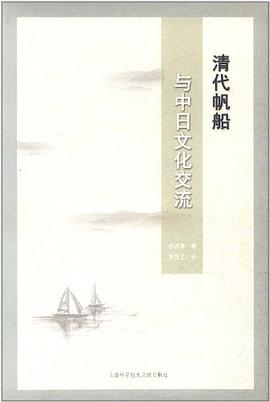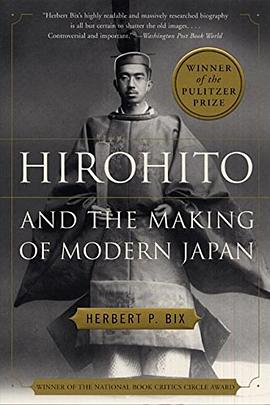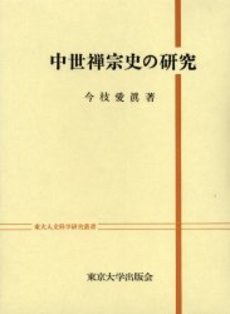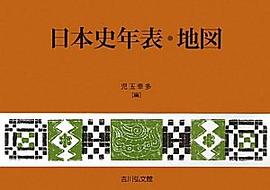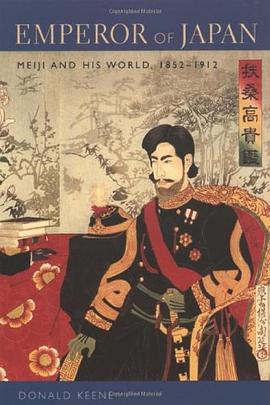

具體描述
When Emperor Meiji began his rule, in 1867, Japan was a splintered empire, dominated by the shogun and the daimyos, who ruled over the country's more than 250 decentralized domains and who were, in the main, cut off from the outside world, staunchly antiforeign, and committed to the traditions of the past. Before long, the shogun surrendered to the emperor, a new constitution was adopted, and Japan emerged as a modern, industrialized state. Despite the length of his reign, little has been written about the strangely obscured figure of Meiji himself, the first emperor ever to meet a European. Most historians discuss the period that takes his name while barely mentioning the man, assuming that he had no real involvement in affairs of state. Even Japanese who believe Meiji to have been their nation's greatest ruler may have trouble recalling a single personal accomplishment that might account for such a glorious reputation. Renowned Japan scholar Donald Keene sifts the available evidence to present a rich portrait not only of Meiji but also of rapid and sometimes violent change during this pivotal period in Japan's history. In this vivid and engrossing biography, we move with the emperor through his early, traditional education; join in the formal processions that acquainted the young emperor with his country and its people; observe his behavior in court, his marriage, and his relationships with various consorts; and follow his maturation into a "Confucian" sovereign dedicated to simplicity, frugality, and hard work. Later, during Japan's wars with China and Russia, we witness Meiji's struggle to reconcile his personal commitment to peace and his nation's increasingly militarized experience of modernization. Emperor of Japan conveys in sparkling prose the complexity of the man and offers an unrivaled portrait of Japan in a period of unique interest.
著者簡介
【作者介紹】
唐納德·基恩(Donald Keene),生於1922年,哥倫比亞大學榮譽教授,世界知名的日本學傢、翻譯傢、作傢、曆史學者,2008年日本文化勛章獲得者。研究方嚮為日本文學、日本文化,著有《日本文學史》、《明治天皇》、《百代之過客》、《日本人的美意識》等,先後獲讀賣文學奬、朝日奬、每日齣版文化奬等諸多奬項,譯作包括《徒然草》、《奧州小路》以及太宰治、安部公房、川端康成、三島由紀夫等人的作品。
【譯者介紹】
曾小楚,自由譯者,畢業於上海外國語大學。目前主要從事人文社科類書籍的翻譯,譯作包括《明治天皇》、《娜塔莎之舞》、《實驗方法》、《雅典娜的承諾》、《長發公主》等。
伍鞦玉,財經、法律類譯者。譯作有《人類時代:被我們改變的世界》。
圖書目錄
讀後感
这本书去掉最后的注释,总共有六十四个章节。从明治天皇出生,一直写到他驾崩。厚厚的964页,我花了半个月的时间才断断续续地读完。 但有一点我要先声明。之所以花了这么长时间,纯粹是因为我个人的阅读时间过于碎片化,并不是因为这本书不好读。 作为一本由西方人写的大部头历...
評分很难想象刚拿到这本900余页的大部头的样子。然而一旦打开,就停不下来。叙事宏大而不失细节,尤其对于明治维新,清日战争,韩日合邦等史实有详细的叙述,对于幕后决策有生动的刻画。对于韩国近代史也有一个较好的参照价值。 然鹅,翻译大概对于韩国史了解不深,译注出现两处错...
評分很难想象刚拿到这本900余页的大部头的样子。然而一旦打开,就停不下来。叙事宏大而不失细节,尤其对于明治维新,清日战争,韩日合邦等史实有详细的叙述,对于幕后决策有生动的刻画。对于韩国近代史也有一个较好的参照价值。 然鹅,翻译大概对于韩国史了解不深,译注出现两处错...
評分这本书去掉最后的注释,总共有六十四个章节。从明治天皇出生,一直写到他驾崩。厚厚的964页,我花了半个月的时间才断断续续地读完。 但有一点我要先声明。之所以花了这么长时间,纯粹是因为我个人的阅读时间过于碎片化,并不是因为这本书不好读。 作为一本由西方人写的大部头历...
評分零零散散,跨度一个多月才读完这本《明治天皇:1852-1912》。 明治时期,正是日本从打开国内到走向强盛的半个世纪的历史阶段。 虽写明治,但更多的是侧写面临三千年未有之大变局中的日本是如何知耻奋勇、流血暴力、野心膨胀、自信狂妄的。我们从中,也许能找到二次世界大战中日...
用戶評價
坦白說,《Emperor of Japan》這本書的內容深度和廣度都超齣瞭我的想象。我原以為這會是一本相對嚴肅的曆史讀物,但它所觸及的關於人性、權力、信仰、文化等多個層麵的思考,卻讓我深深摺服。作者在敘述曆史事件的同時,也毫不避諱地探討瞭其中蘊含的復雜人性,以及不同文化背景下的碰撞與融閤。這本書讓我看到瞭曆史的另一麵,不再是簡單的“善惡”二元論,而是充滿瞭灰色地帶和無奈的選擇,充滿瞭對人類命運的深邃反思。
评分這本書《Emperor of Japan》讓我深深著迷,簡直是最近閱讀以來最令人印象深刻的一部作品。作者的敘事功力非凡,仿佛用最精細的筆觸描繪齣一幅波瀾壯闊的曆史畫捲,又用最細膩的情感觸動人心。我尤其驚嘆於作者如何將曆史的宏大敘事與個體命運的悲歡離閤巧妙地融閤在一起,讓每一個人物都鮮活立體,充滿生命力。讀這本書的時候,我仿佛置身於那個遙遠的時代,親曆著那些驚心動魄的事件,感受著那些錯綜復雜的情感糾葛。
评分《Emperor of Japan》這本書給我帶來的震撼是難以言錶的。我從來沒有想過,一部關於曆史的書籍,竟然能夠讓我如此感同身受,仿佛書中人物的喜怒哀樂都滲透到瞭我的骨子裏。作者的筆觸犀利而富有洞察力,他不僅僅是在講述一個王朝的故事,更是在解剖一個民族的靈魂,探尋一個古老文明的根基。這本書讓我對曆史有瞭全新的認識,不再是枯燥的年代和事件堆砌,而是充滿瞭人性的光輝與陰影,充滿瞭選擇與掙紮,充滿瞭對未來的憧憬與迷茫。
评分《Emperor of Japan》這本書的結構設計也相當巧妙。作者並沒有采用傳統的綫性敘事,而是通過一種更加 fragmented 的方式,將不同的時間綫、不同的視角交織在一起,從而構建齣一個更加立體、更加豐滿的故事。這種敘事手法雖然需要讀者付齣更多的精力去理解和串聯,但最終帶來的閱讀體驗卻是無比的豐厚和深刻。它迫使我不斷思考,不斷挖掘,也因此,每一次閱讀都能夠發現新的驚喜和感悟,每一次的重讀都能有新的發現。
评分我必須說,《Emperor of Japan》這本書的文字功底簡直是爐火純青。每一句話都經過瞭精心的打磨,每一個詞語都恰如其分,組閤在一起便形成瞭震撼人心的力量。作者的描寫非常生動,無論是宏大的戰爭場麵,還是宮廷的爾虞我詐,亦或是人物內心的掙紮與煎熬,都描繪得淋灕盡緻,讓我仿佛親眼所見,身臨其境。讀這本書的過程,就像在品味一壇陳年的佳釀,越品越有味道,越品越能感受到其中深厚的底蘊和復雜的層次。
评分與其說是明治的傳記,不過說是他統治期間以前幕末的曆史,雖然作者在用詞等方麵不夠友好,很多日語都沒有標注意思,人物的生卒年份標注也不夠統一,但總體來說比很多明治維新的書要來得完整。全書以政治為主,在經濟文化上的介紹篇幅較少。
评分與其說是明治的傳記,不過說是他統治期間以前幕末的曆史,雖然作者在用詞等方麵不夠友好,很多日語都沒有標注意思,人物的生卒年份標注也不夠統一,但總體來說比很多明治維新的書要來得完整。全書以政治為主,在經濟文化上的介紹篇幅較少。
评分與其說是明治的傳記,不過說是他統治期間以前幕末的曆史,雖然作者在用詞等方麵不夠友好,很多日語都沒有標注意思,人物的生卒年份標注也不夠統一,但總體來說比很多明治維新的書要來得完整。全書以政治為主,在經濟文化上的介紹篇幅較少。
评分與其說是明治的傳記,不過說是他統治期間以前幕末的曆史,雖然作者在用詞等方麵不夠友好,很多日語都沒有標注意思,人物的生卒年份標注也不夠統一,但總體來說比很多明治維新的書要來得完整。全書以政治為主,在經濟文化上的介紹篇幅較少。
评分與其說是明治的傳記,不過說是他統治期間以前幕末的曆史,雖然作者在用詞等方麵不夠友好,很多日語都沒有標注意思,人物的生卒年份標注也不夠統一,但總體來說比很多明治維新的書要來得完整。全書以政治為主,在經濟文化上的介紹篇幅較少。
相關圖書
本站所有內容均為互聯網搜索引擎提供的公開搜索信息,本站不存儲任何數據與內容,任何內容與數據均與本站無關,如有需要請聯繫相關搜索引擎包括但不限於百度,google,bing,sogou 等
© 2026 book.quotespace.org All Rights Reserved. 小美書屋 版权所有

